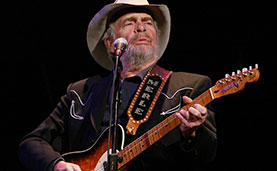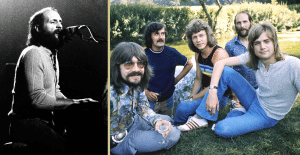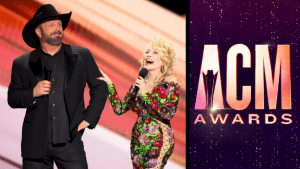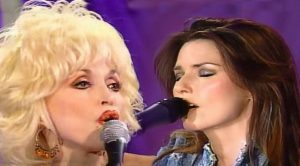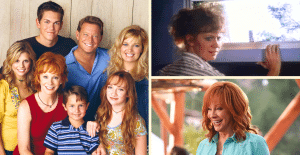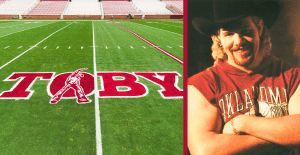13 Classic Country Songs With Surprising Backstories
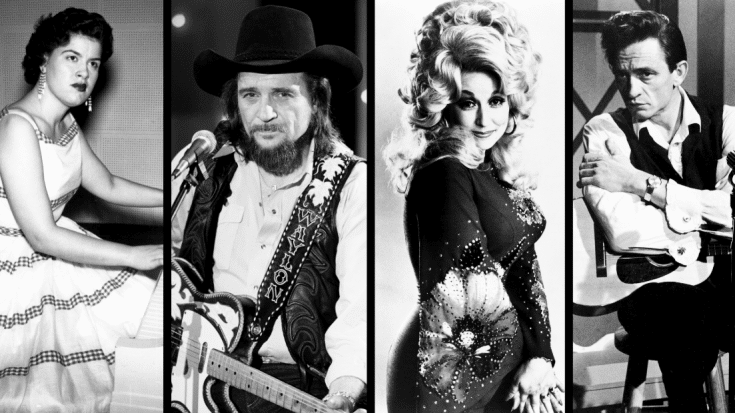
(First) Michael Ochs Archives / Getty Images / (Second) Michael Ochs Archives / Getty Images (Third) Richard E. Aaron / Redferns / Getty Images / (Fourth) Hulton Archive / Getty Images
These 13 Classic Country Songs Have Surprising Backstories You May Have Never Heard Before
Every country song has a backstory. Though some of those stories are more surprising than others.
This list details the surprising backstories connected to 13 timeless country songs. We’ve labeled these songs as “classic,” though a few can more specifically fall under the “outlaw” and “traditional” umbrellas.
Some of these stories cover the unusual sources of inspirations that led to a song’s creation. Other stories cover the surprising way a song landed in a certain artist’s lap. For example, if the track was nearly recorded by someone else first.
Keep reading for more details about the surprising tales in this list. You’ll see (and hear) your favorite country songs in a whole new light once you know these stories!
Look Below To Read The Surprising Backstories Behind 13 Beloved Classic Country Songs
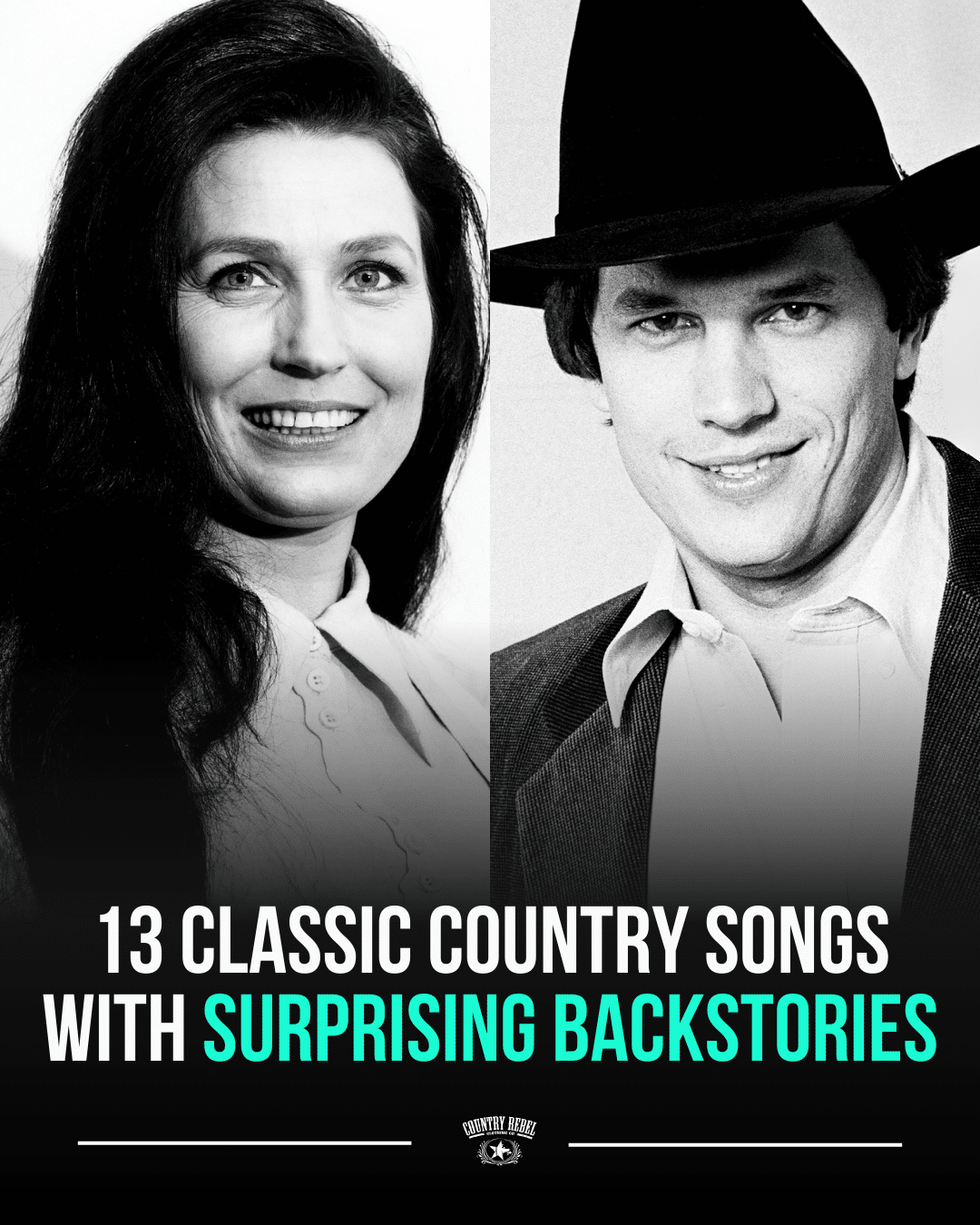
“Crazy” By Patsy Cline
Did you know that Patsy Cline’s signature song “Crazy” was written by Willie Nelson? It’s true!
Nelson didn’t yet have a hit recording of his own when he penned “Crazy” in 1961. He earned his money through songwriting, so he hoped a major star would pick up the song.
In fact, Nelson had a specific artist in mind for “Crazy,” and it wasn’t Cline. He wanted country singer Billy Walker to record the tune. But Walker turned him down.
Nelson didn’t let that stop him. One night, he went to Tootsie’s Orchid Lounge in Nashville with an idea in mind. He planned to play his own recording of “Crazy” on the jukebox to see if anyone would express interest.
His plan worked. He caught the attention of a man named Charlie Dick, who just so happened to be Patsy Cline’s husband.
Dick felt confident that Cline would love the song. In fact, he was so confident, he insisted that he and Nelson present the tune to her that night…even though it was well after midnight.
Nelson went home with Dick, who got Cline to come outside. She asked Nelson to play “Crazy” for her, and he did.
Accounts differ from there. Nelson himself said Cline loved the song right away.
However, her biographer Ellis Nassour claimed the opposite. Nassour wrote that Cline didn’t like the way Nelson sounded on “Crazy.” She warmed up to the song after her producer, Owen Bradley, rearranged it to fit her voice.
Either way, Cline recorded the song and it became one of her biggest hits. Read more about the surprising backstory behind “Crazy” here.
“The Chair” By George Strait
Songwriters Hank Cochran and Dean Dillion were on a Caribbean retreat to celebrate the recent success of their #1 hits “Miami, My Amy” and “Homecoming ’63” (both by Keith Whitley). The two men stayed up late one night after enjoying their fair share of adult beverages.
“By about four in the morning, I had drunk so much whiskey that I had actually drunk myself sober; I didn’t know you could do that, but I did it,” Dillon later told Texas Monthly.
Dillon was (understandably) exhausted. Then, out of the exhaustion and intoxication, a song was born.
“And I don’t know what happened, but then Hank sat down in a chair across from me, and I looked at him, picked up the guitar, struck a G chord, and started singing, ‘Well, excuse me, but I think you’ve got my chair.’ And he said, ‘Have you written that song?’ I said, ‘No.’ And he said, ‘Well, we’re about to.’ And 45 minutes later, we’d written ‘The Chair,‘” Dillon recalled.
The first verse came easy to the pair. They knew they wanted the song to take on a conversational, casual tone with no true chorus.
But they eventually hit a wall. Cochran took a break, grabbed a beer, and came back a few minutes later. That’s when he suggested the seemingly nonsensical lyric:
“Well, thank you, can I drink you a buy? Aw, listen to me, what I mean is, can I buy you a drink? Anything you please.”
Dillion remembered thinking, “Man, that is either the craziest damn thing I ever heard of in my life, or this guy’s brilliant.”
Strait released his recording of “The Chair” in August 1985. It became a #1 hit, and CMT later ranked it at the 24th spot on its 100 Greatest Songs of Country Music list.
Read more about the surprising backstory behind “The Chair” here.
“The Thunder Rolls” By Garth Brooks
Garth Brooks had an idea to write a song about “thunder rolling” inside of a marriage. He teamed up with fellow singer-songwriter Pat Alger to write a song based on that concept.
That song became “The Thunder Rolls.” The two artists were incredibly pleased with the end result.
But instead of recording the song himself, Brooks wanted to pitch it to someone else. That someone was Tanya Tucker.
As luck would have it, Tucker was a huge fan of “The Thunder Rolls.” Her producer asked Brooks and Alger to add another verse to the track, and they happily complied.
Tucker cut the song sometime in the late 1980s. But her recording didn’t make it onto an album right away, which left it free for someone else to record.
That’s when Brooks stepped in to record the song himself. He released his version of “The Thunder Rolls” in April 1991, and it reached the #1 spot on the Hot Country Songs chart.
Brooks dropped the additional verse he wrote for Tucker’s version of the song. But you can still hear that famous extra verse at his concerts.
Tucker’s recording of “The Thunder Rolls” finally surfaced on a box set she released in 1995. It’s wild to think that if things went according to plan, she would have released the song first!
Learn more about the story behind “The Thunder Rolls” here.
“Whiskey Lullaby” By Brad Paisley & Alison Krauss
Bill Anderson and Jon Randall co-wrote “Whiskey Lullaby.” As Anderson explained in an interview with The Tennessean, the song was partially inspired by Randall’s divorce from country singer Lorrie Morgan.
Randall turned to drinking to cope with his post-divorce heartbreak. He slept on a friend’s couch one night, and that friend said something to him that stuck out in his mind.
“That’s all right Jon. I’ve put the bottle to my head and pulled the trigger a few times myself.'”
Randall brought that line to Anderson. He combined that with an idea he had about a “midnight cigarette,” and “Whiskey Lullaby” was born.
But that’s not the most surprising part of the song’s backstory.
Anderson and Randall wrote “Whiskey Lullaby” in 2000. Shockingly, no one claimed it. Anderson thought maybe its sad subject matter deterred a lot of artists from giving it a try.
Finally, The Chicks placed “Whiskey Lullaby” on hold. They maintained their hold for three years, but never recorded the song.
Meanwhile, Brad Paisley made it known he wanted to record “Whiskey Lullaby” if The Chicks ever dropped their claim. After the public backlash surrounding their criticism of President George W. Bush, the trio released their hold on the song.
Then Paisley had the primary hold. He immediately rushed to record the song, and asked Anderson what he thought about making it a duet. When Anderson asked who he had in mind, Paisley named Dolly Parton and Alison Krauss as potential collaborators.
As you know, Krauss was the one who joined Paisley on the song. They released their duet in March 2004, and it reached the third spot on the Hot Country Songs chart. Randall and Anderson won the 2005 CMA Award for Song of the Year.
Head here to learn more about the surprising backstory behind “Whiskey Lullaby.”
“Don’t You Think This Outlaw Bit’s Done Got Out Of Hand” By Waylon Jennings
Many of Waylon Jennings’ songs were inspired by tales from his “outlaw” life. One of the most notable examples was his song “Don’t You Think This Outlaw Bit’s Done Got Out of Hand.”
The song was written entirely by Jennings, and tells the real-life story of the time the DEA came knocking when he was in the middle of working at his recording studio.
The year was 1977. Jennings had developed a serious drug habit, and pills and cocaine were his drugs of choice.
One of Jennings’ acquaintances sent him a package containing a large amount of cocaine through a private delivery service. Someone working at the service thought the package seem suspicious, so they opened it. They informed the DEA about their discovery. The DEA removed most of the contents, but sent a few grams on to Jennings in Nashville.
Jennings was recording in the studio one night when the DEA showed up. He noticed an error in their warrant, which named him as the owner of the studio. He only owned the office next door, and rented the studio.
While the agents waited to correct the warrant, Jennings and his drummer Richie Albright rushed to get rid of the drugs they had in the studio. While they were successful, the DEA arrested Jennings anyway.
Because of the mistake on the original warrant, Jennings was let off the hook. The experience rattled him a bit, to say the least, and inspired him to write “Don’t You Think This Outlaw Bit’s Done Got Out of Hand.”
The song ended up reaching the fifth spot on the country chart in the U.S. and was a #1 hit in Canada.
Learn more about the crazy true story behind “Outlaw Bit” here.
“Jolene” By Dolly Parton
Dolly Parton found the inspiration for her song “Jolene” from two different places. Or rather, people.
For starters, she got Jolene’s now-famous name from a young girl who attended one of her shows. As Parton told NPR in 2008:
“One night, I was on stage, and there was this beautiful little girl — she was probably 8 years old at the time. And she had this beautiful red hair, this beautiful skin, these beautiful green eyes, and she was looking up at me, holding, you know, for an autograph. I said, ‘Well, you’re the prettiest little thing I ever saw. So what is your name?’ And she said, ‘Jolene.’ And I said, ‘Jolene. Jolene. Jolene. Jolene.’ I said, ‘That is pretty. That sounds like a song. I’m going to write a song about that.'”
Then, the actual subject matter came from another redhead Parton encountered in her life. That redhead was a bank teller who had what Parton described as a “terrible crush” on her husband Carl Dean.
“And he just loved going to the bank because she paid him so much attention,” Parton said. “It was kinda like a running joke between us — when I was saying, ‘H—, you’re spending a lot of time at the bank. I don’t believe we’ve got that kind of money.’ So it’s really an innocent song all around, but sounds like a dreadful one.”
Parton released “Jolene” in 1973. The song reached #1, and has since been certified 3x Platinum by the RIAA.
“I Walk The Line” By Johnny Cash
Johnny Cash’s “I Walk the Line” came from an unlikely source of inspiration…a tape playing backward.
It’s well-known that Cash wrote the song as a way of sharing his love for his first wife, Vivian Liberto. He penned the tune in 1956 while hanging out backstage at a show in Texas.
But, that’s only how he came up with the lyrics. Cash actually wrote the song’s unique chord progression years earlier while he was serving in the Air Force.
Cash purchased a tape recorder with the money he saved while stationed in Germany. One day, Cash went to play a tape by his band, the the Landsberg Barbarians. But someone had messed with the tape recorder, and it played the tape in reverse.
“Out came the strangest sound, a haunting drone full of weird chord changes,” Cash wrote in his 1997 autobiography. “To me it seemed like some sort of spooky church music, and at the end there was what sounded like somebody saying ‘Father.’ I played it a million times, trying to figure it out…but finally I solved the puzzle: the tape had gotten turned around somehow, and I was hearing Barbarian guitar chords played backward. The drone and those weird chord changes stayed with me and surfaced in the melody of ‘I Walk the Line.'”
Later, Cash combined the chord progression with the lyrics he wrote about his love for his wife. The resulting song was “I Walk the Line,” which became the first #1 hit of his career.
Learn more about the surprising backstory behind “I Walk the Line” here.
“Highwayman” By The Highwaymen
Waylon Jennings, Willie Nelson, Johnny Cash, and Kris Kristofferson formed the country music supergroup The Highwaymen. Their name came from their first song together, titled “Highwayman.”
The song was written by Jimmy Webb, and was first recorded by Glen Campbell.
Following a Christmas special in the 1980s, Jennings, Nelson, Cash, and Kristofferson all gathered around to tell stories and play guitar. Most of the men shared connections to each other.
But Cash and Nelson were practically strangers. Nelson’s producer encouraged him to record a duet record with Cash so they could get to know each other better.
However, since Nelson and Cash had distinctly different (and unique) voices, they didn’t mesh together musically. Marty Stuart, who was in Cash’s backing band, recalls how their voices were “so polar opposite.”
That’s when Stuart remembered the song “Highwayman.” He made a pitch to have four male artists sing it, with each artist singing their own verse and no harmony required. Cash and Nelson could be two of those artists. It soon became clear that Jennings and Kristofferson should be the other two.
After listening to the song again, Cash told Stuart, “I want the verse about the starship.”
That verse (the last one), is the one Cash took once The Highwaymen recorded the track. They released their version in 1985, and it was a #1 country hit. The Highwaymen went on to release three albums and performed together for ten years.
Learn more about the incredible story behind “Highwayman” and The Highwaymen here.
“Unwound” By George Strait
Dean Dillon and Frank Dycus never intended to pitch the song “Unwound” to George Strait. Strait was an unknown artist at the time, who released three independent singles between 1976-1979. All three songs failed to chart or make any major impact.
Since Strait wasn’t even on their radar, Dillon and Dycus had another artist in mind for “Unwound.” That artist was outlaw country singer Johnny Paycheck.
But the duo had to abandon their plans to give the song to Paycheck…because he was in jail!
It’s of note, this was a separate (and earlier) instance than the time Paycheck spent in prison for shooting a man at the North High Lounge in Hillsboro, Ohio.
With Paycheck behind bars, Dillon and Dycus needed to find a new artist for “Unwound.” They caught their break when record producer Blake Mavis asked if they had any songs available for him to give “a new kid from Texas.”
That “kid” was Strait, and the duo decided he could have “Unwound.” It became Strait’s debut single in 1981, and reached #6 on the Hot Country Songs chart. He earned his first #1 hit, “Fool Hearted Memory,” the following year. He now has 60 number one songs to his name, and Dillon wrote many of them.
Learn more about the wild true story behind “Unwound” here.
“Heartbreak Hotel” By Elvis Presley
The backstory behind Elvis Presley’s “Heartbreak Hotel” remains a mysterious subject.
Songwriters Tommy Durden and Mae Boren Axton penned “Heartbreak Hotel.” According to the book Untold Gold: The Stories Behind Elvis’ #1 Hits by Ace Collins, the duo felt inspired to write the tune after reading a report in The Miami Herald.
The report told the story of a man who destroyed everything pertaining to his identity before jumping from a hotel window. This man left a note behind, which simply read, “I walk a lonely street.”
For years, people accepted this story as truth. But in 2016, Rolling Stone published an article expressing doubts about the tale’s authenticity.
Durden and Axton always cited The Miami Herald story as their source of inspiration. They stuck to this story until their respective deaths in 1999 and 1997.
However, no one else ever found any evidence that such a story was printed in The Miami Herald.
Rolling Stone came to the conclusion that Durden and Axton may have been inspired by the story of an artist named Alvin Krolik instead. A dejected Krolik went on an armed robbery spree after his marriage fell apart. The troubled man was allegedly working on an autobiography, in which he warned others not to follow in his footsteps.
Publishers citing Krolik’s book claim it read:
“If you stand on a corner with a pack of cigarettes or a bottle and have nothing to do in life, I suggest you sit down and think. This is the story of a person who walked a lonely street. I hope this will help someone in the future.”
Krolik died just one month before Durden and Axton wrote “Heartbreak Hotel.” Newspapers around the country reported on his passing, and referenced his “lonely street” line in their stories.
No matter what inspired “Heartbreak Hotel,” the song was a huge hit. Presley took it to #1 on multiple charts, including the all-genre Billboard Hot 100.
Learn more about the mysterious story behind “Heartbreak Hotel” here.
“I Don’t Need Your Rockin’ Chair” By George Jones
George Jones co-wrote the song “I Don’t Need Your Rockin’ Chair” with Billy Yates, Frank Dycus, and Kerry Kurt in 1992. During their writing session, Jones told a story about how he previously recorded a duet with Dolly Parton called “Rockin’ Years.”
Jones liked the song, and believed it had the potential to be a #1 hit. But the record label seemed to have other thoughts.
The label didn’t think that Jones and Parton’s voices sounded good together. So the label removed Jones’ vocals, and brought in another singer to record his part. They re-recorded the track with a then-new artist, Ricky Van Shelton.
Just as Jones believed, “Rockin’ Years” became a #1 hit in 1991…but for Parton and Shelton.
Jones was understandably upset about being removed from “Rockin’ Years.” He left his record label because of the incident.
The whole situation still stung when he sat down for his writing session with Yates, Dycus, and Kurt. So he suggested they write a “response” of sorts.
“So when he said, ‘Let’s write a song, I don’t need your rockin’ chair,’ I knew to George that was also gonna mean ‘I don’t need your rockin’ years… And I knew he’d love it if we got it right,” Yates later recalled.
They got it right. “I Don’t Need Your Rockin’ Chair” reached the 34th spot on the Hot Country Songs chart.
It also featured a ton of other country stars, including Garth Brooks, Vince Gill, and Alan Jackson. As a result, the song ended up winning the 1993 CMA Award for Vocal Event of the Year.
Learn more about the backstory behind “I Don’t Need Your Rockin’ Chair” here.
“Should’ve Been A Cowboy” By Toby Keith
Toby Keith served as a the sole songwriter behind his debut single, “Should’ve Been a Cowboy.” Keith shared the story behind the now-iconic song in a video he posted on January 3, 2024…just one month before he passed away.
As Keith relayed, he took a break from working on his debut album to go on a hunting trip with his friends in Dodge City, Kansas. Keith recalled always feeling aware of the town’s Old West style, and he liked it.
One evening, Keith and his buddies went to a steakhouse bar while still wearing their hunting gear. Keith and his friends watched as a fellow hunter named John approached a pretty cowgirl and asked if she’d like to dance.
But she turned him down. This prompted one of Keith’s friends to say, “John, you should’ve been a cowboy.”
That one line sparked something in Keith’s mind. He went back to his motel, and wrote a song in 20 minutes:
“So I thought, ‘I’m going to write that,'” Keith remembered. “I took my guitar, sat on the side of the motel tub, and shut the door so no one could hear me.”
Keith released “Should’ve Been a Cowboy” in 1993. It reached #1 on the Hot Country Songs chart, and kickstarted what ended up being a legendary career.
Read more about the wild backstory behind “Should’ve Been a Cowboy” here.
“You Ain’t Woman Enough (To Take My Man)” By Loretta Lynn
Many of Loretta Lynn’s songs were inspired by her own life. One such song was “You Ain’t Woman Enough (To Take My Man.”
Lynn told the story behind the tune on her 2016 PBS documentary Loretta Lynn: Still a Mountain Girl.
Lynn recalled how she was in her dressing room one night with pin curls in her hair. Suddenly, a woman appeared at her dressing room door, surprising Lynn. She wanted her help with something.
“She was telling me about this girl, she was trying to take her husband away from her,” Lynn detailed. “[She] said, ‘I want you, when you can, peek out the curtain and I’m gonna show you where he’s sittin’, and her, she’s sittin’ right beside of him.'”
Lynn went with the woman, who pointed out her husband and the lady who admired him. Then, Lynn offered a piece of advice that inspired her to write a song.
“I looked out there and I seen this painted up girl you know? She was really painted up. The little girl that was standing there beside of me, she didn’t have any makeup on, but she was a beautiful little girl. I looked back at that girl and I said ‘Honey she ain’t woman enough to take your man.'”
After comforting her fan, Lynn rushed back to her dressing room and wrote “You Ain’t Woman Enough” in ten minutes. She released the song in 1966, and it reached the #2 spot on the Hot Country Songs chart. It came to be known as one of her signature songs.
Check out the video below to hear Lynn share more of the story behind “You Ain’t Woman Enough.”
Which one of these classic country songs’ backstories were you most surprised to learn about?




